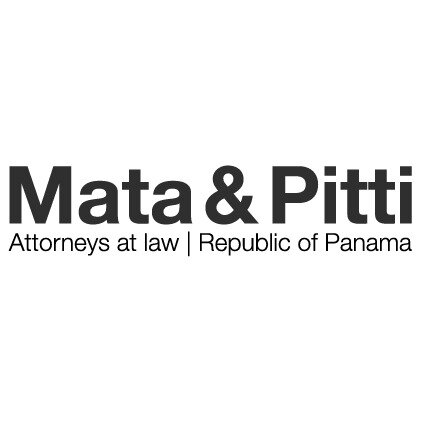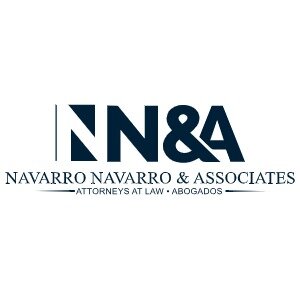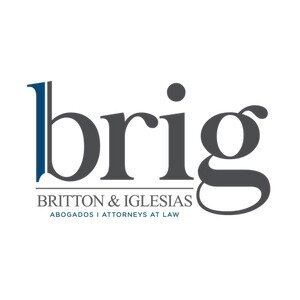Best Mining Law Lawyers in Panama
Share your needs with us, get contacted by law firms.
Free. Takes 2 min.
Or refine your search by selecting a city:
List of the best lawyers in Panama
About Mining Law in Panama
Mining Law in Panama encompasses the legal regulations, policies, and procedures that govern the exploration, extraction, and commercialization of mineral resources within the country's territory. Panama is rich in natural resources and has a long history of mining activities, especially in the extraction of gold, copper, and other valuable minerals. The government seeks to balance economic growth from mining with the protection of the environment and local communities. Mining Law in Panama establishes the legal framework for obtaining exploration and exploitation concessions, environmental compliance, royalties, and the rights and obligations of all parties involved in mining operations.
Why You May Need a Lawyer
Mining projects in Panama can be complex, involving multiple layers of regulations, permits, and compliance requirements. Engaging a lawyer who specializes in Mining Law is essential in several common situations, such as:
- Applying for exploration or exploitation concessions
- Negotiating contracts or joint ventures with local partners
- Ensuring compliance with environmental regulations
- Handling disputes with local communities or indigenous groups
- Dealing with government authorities regarding permits and royalties
- Managing risks related to land rights, access, and ownership
- Advising on tax implications and fiscal benefits for mining operations
- Resolving conflicts or litigation related to mining activities
Legal professionals provide guidance to avoid costly errors, streamline administrative processes, and ensure full regulatory compliance in all mining-related matters.
Local Laws Overview
Panamanian Mining Law is mainly governed by the Mining Code, Law 11 of 2012, and its subsequent amendments, as well as several resolutions and regulations issued by the Ministry of Commerce and Industries (Ministerio de Comercio e Industrias or MICI). Some of the key aspects of local laws relevant to Mining Law in Panama include:
- Concession System: Mining rights in Panama are granted through a concession system. Concessions are required for both exploration and extraction, each with specific terms, conditions, and durations. These concessions can be requested by individuals or legal entities.
- Environmental Regulations: All mining projects must undergo environmental impact assessments and obtain relevant permits from the National Environment Authority (Autoridad Nacional del Ambiente or ANAM). Strict environmental responsibility is required.
- Royalties and Taxes: Holders of mining concessions are required to pay royalties to the State based on the type and quantity of minerals extracted, alongside standard tax obligations.
- Land Use: Mining activities often intersect with private and public land rights. A detailed process exists for acquiring land use rights or negotiating with affected landowners.
- Community and Indigenous Rights: Mining operations near indigenous territories or local communities must respect their rights and often require additional consultation and agreements.
- Closure and Rehabilitation: Concession holders must present plans for mine closure and post-mining environmental rehabilitation.
Frequently Asked Questions
What types of mineral resources can be legally mined in Panama?
A wide variety of minerals can be legally mined, including gold, copper, silver, iron, manganese, and construction materials such as sand and gravel, as long as the appropriate concession is obtained.
How are mining concessions granted in Panama?
Mining concessions are granted by the Ministry of Commerce and Industries through a public application process. They involve submitting technical and financial documentation and compliance with specific legal requirements.
What is the duration of a mining concession?
Exploration concessions are typically granted for four years, with possible extensions. Extraction or exploitation concessions can be granted for up to twenty years and may also be renewed.
Are foreign individuals or companies allowed to own mining concessions?
Yes, foreign individuals and companies can acquire mining concessions in Panama, either directly or through Panamanian subsidiaries, as long as they meet the legal requirements.
What are the environmental requirements for mining projects?
All mining projects must conduct environmental impact studies and obtain authorization from environmental authorities. Compliance with ongoing environmental monitoring and mitigation is mandatory.
How are royalties and taxes calculated for mining companies?
Royalties are calculated based on the quantity and type of mineral extracted and fixed by law or specific agreements. Mining companies also pay corporate income taxes and other applicable fiscal charges.
What legal protections exist for indigenous communities affected by mining?
Panama's laws require consultations with indigenous communities before issuing concessions that may impact their territories. Special protections and compensation agreements may be implemented based on the outcomes.
What happens if a company fails to comply with mining regulations?
Noncompliance can result in fines, suspension, or cancellation of mining concessions, as well as civil and criminal liability for environmental or other damages.
Can landowners prevent mining on their property?
Landowners have certain rights, but the State retains control over mineral resources. Expropriation or negotiation may occur to allow mining, subject to compensation and legal procedures.
How do I resolve a mining-related dispute in Panama?
Disputes can be resolved through administrative procedures, negotiation, or litigation in Panamanian courts. Arbitration may also be an option, depending on the contract terms.
Additional Resources
If you are seeking further information or assistance regarding Mining Law in Panama, consider these resources:
- Ministry of Commerce and Industries (MICI): The principal regulatory body for the mining sector, responsible for issuing concessions and overseeing compliance.
- National Environment Authority (ANAM): The government agency for environmental management and permitting.
- Chamber of Mining of Panama (Cámara Minera de Panamá): An organization representing the mining industry that may provide guidance and industry updates.
- Local Bar Associations: Professional groups of lawyers can connect you with legal experts in Mining Law.
- Panama Government Official Websites: For updated legislation, regulations, and administrative procedures regarding mining.
Next Steps
If you require legal assistance related to Mining Law in Panama, follow these recommended steps:
- Define the nature of your mining interest, whether prospecting, investment, partnership, or compliance.
- Collect all relevant documents, such as land titles, project descriptions, and correspondence with authorities.
- Contact an attorney with experience in Mining Law. A specialized lawyer will advise you on procedures, rights, and obligations.
- Schedule an initial consultation to receive guidance tailored to your situation.
- Follow your lawyer's instructions regarding document preparation, permit applications, negotiations, or legal disputes.
Taking these steps promptly ensures your interests are properly represented and protected as you navigate Panama's mining legal framework.
Lawzana helps you find the best lawyers and law firms in Panama through a curated and pre-screened list of qualified legal professionals. Our platform offers rankings and detailed profiles of attorneys and law firms, allowing you to compare based on practice areas, including Mining Law, experience, and client feedback.
Each profile includes a description of the firm's areas of practice, client reviews, team members and partners, year of establishment, spoken languages, office locations, contact information, social media presence, and any published articles or resources. Most firms on our platform speak English and are experienced in both local and international legal matters.
Get a quote from top-rated law firms in Panama — quickly, securely, and without unnecessary hassle.
Disclaimer:
The information provided on this page is for general informational purposes only and does not constitute legal advice. While we strive to ensure the accuracy and relevance of the content, legal information may change over time, and interpretations of the law can vary. You should always consult with a qualified legal professional for advice specific to your situation.
We disclaim all liability for actions taken or not taken based on the content of this page. If you believe any information is incorrect or outdated, please contact us, and we will review and update it where appropriate.
Browse mining law law firms by city in Panama
Refine your search by selecting a city.
















